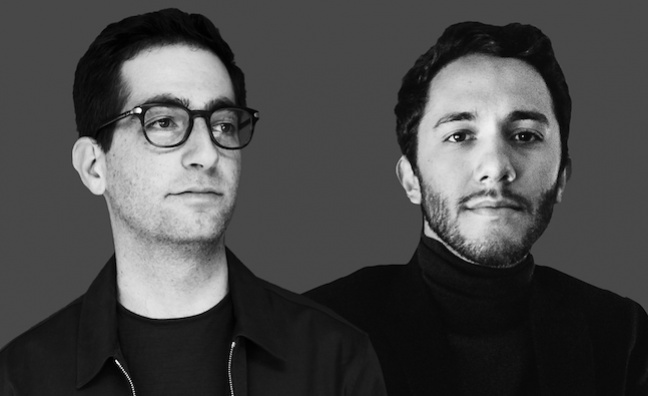NFTs have become a booming sector of the music industry in the past year.
In the past week alone, there have been new launches from The Wombats, John Lennon (via his son Julian Lennon) and The BRITs.
Warner Music has just teamed with NFT swaps platform Blockparty.
Nas recently announced an NFT that will include rights to new songs, while emerging artists could potentially get involved with the blockchain technology via TuneCore.
As with all new tech, there’s a right way and a wrong way to go about launching non-fungible tokens.
Andrew Gertler, manager of Shawn Mendes, and Tyler Henry, managing partner of Range Media Partners, have launched Sturdy.exchange as a platform for curated NFTs.
Here, the pair talk NFTs, Web3, blockchain ticketing and the music business...
As an artist manager, what made you want to get into NFTs?
Andrew Gertler: “Any time there is a potentially industry shaking technological shift, I always want to be ahead of the curve and learn as much as I can on behalf of our artists. It’s my job as a manager to make sure my artists are informed and ahead of the curve. NFTs, but even wider than that, blockchain and Web3 are a major shift in the internet and our digital world as we know it. It will have an impact on everything we do as managers in years to come if we embrace the technology properly.”
NFTs in music have had a lot of coverage, but what was the best or most innovative way in which they were used in the past year?
Tyler Henry: “To be honest, I think a lot of music NFT projects were done as a way for artists to make some money. The music industry really needs to understand the potential of the space and take time! Get involved and have fun. Not everything needs to be about making money. We are in such an early phase of this space, and we need to develop and take care of it.”
AG: “I’m most excited about three types of projects specifically in music that I’ve seen in the past year. Firstly, streaming and music rights platforms that reinvent the thought process around music ownership and distribution and put power in the hands of the fan and artist, like Audius or 3Lau’s Royal. I am also very excited about the potential for blockchain in ticketing, in order to help verify authenticity and also to help artists and promoters capture more of the secondary market. And, thirdly, I’m really excited about digital collectibles as a totally new business for artists. This is going to be the hardest model to crack, as it’s a new consumer experience for fans, but I’m excited.”
I think NFTs and digital goods will be worth more than physical items one day
Tyler Henry
Is there a risk they can detract from music as an art form?
TH: “The music industry is continuing to build in that direction, and Web3 will be a big part in it. The biggest risk I see is inauthenticity. I hope artists and creators really see how special this space is, and they don’t just look at it as a way to make a quick dollar.”
AG: “I do think there’s a risk NFTs can detract from the art if artists aren’t reading the room and giving fans what they truly want and see inherent value in. We’ve seen this already with the cash grab NFT drop rush that happened earlier on in 2021. The most important thing is going to be to build lasting ecosystems that truly bring value to the fan, that represent the art, and enhance the consumer and music experience.”
Looking ahead, what kinds of trends are you expecting to see?
TH: “As you know, we are very early on in this, but I think NFTs and digital goods will be worth more than physical items one day. It’ll be important that we continue to think about new and innovative utilities in the coming year.”
AG: “I think 2022 will still be a major year of experimentation, but we will also see some music projects start to really take off. I’m also excited to see how musicians implement NFTs into their touring cycles when touring eventually gets back to normal. There’s so much potential.”











